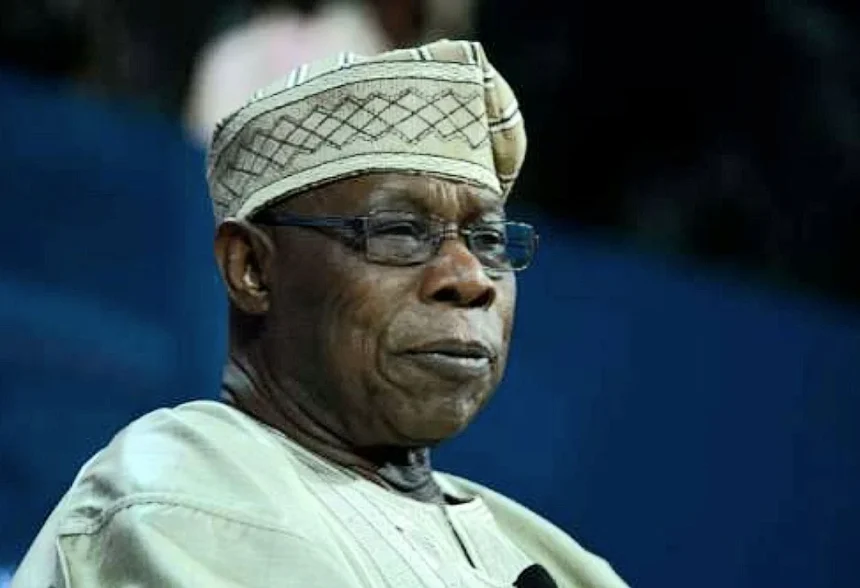Former President Olusegun Obasanjo has called on Nigerians to urgently push for the installation of credible leadership within the Independent National Electoral Commission (INEC). Speaking at the Chinua Achebe Leadership Forum at Yale University, Obasanjo emphasized that achieving electoral integrity requires appointing impartial officials with unblemished reputations. The veteran statesman, who delivered his keynote address on the topic “Leadership Failure and State Capture in Nigeria,” painted a grim picture of the nation’s current political landscape, which he described as being under “state capture.”
Obasanjo’s concerns were not limited to the electoral body; he expressed deep discontent with Nigeria’s judiciary, accusing it of falling prey to political manipulation. According to him, justice in Nigeria has become a commodity for the highest bidder, compromising trust in the legal system. He pointed out that this corrosion of judicial integrity fuels political impunity, with politicians openly taunting their opponents to seek justice in courts they already control.

Addressing Nigeria’s economic decline, Obasanjo noted that the country’s GDP, which stood at $510 billion under former Finance Minister Ngozi Okonjo-Iweala, has plummeted to $199 billion during President Bola Tinubu’s administration, as per recent IMF data. He attributed the past economic resilience to the caliber of leaders in his government, singling out individuals like Okonjo-Iweala, the late Bola Ige, and Oby Ezekwesili. Obasanjo emphasized that reforms and skilled governance were responsible for Nigeria’s impressive GDP growth during his presidency, a period where annual growth reached up to 15.3% in some years.
Reflecting on the 2023 elections, Obasanjo deemed them a “travesty,” arguing that reforms must prioritize insulating elections from domestic and foreign interferences. He advocated for thorough vetting of electoral personnel, including the INEC chairperson, to ensure their independence and incorruptibility. To rebuild trust, he called for transparent and rigorous pre-election system checks, emphasizing the importance of safeguarding voting technology and ensuring that the electoral infrastructure is protected from tampering.
Obasanjo didn’t spare words in criticizing the misuse of technological tools like the Bimodal Voter Accreditation System (BVAS) and INEC’s Election Result Viewing Portal (IReV), which, despite their potential, were not properly implemented. He accused INEC of enabling voting irregularities by failing to utilize these tools as promised, likening it to “inviting the fox into the hen house.”
The former president also urged post-election audits and transparent procedures that ensure free and fair voting outcomes. He argued that any election where the actual votes are sidelined and winners are declared through manipulation undermines democracy and breeds instability. The increasing influence of wealth over judicial decisions, he asserted, turns the judiciary into an enabler of state capture—a situation where political and business elites subvert national interests for personal gain.
Expounding on state capture, Obasanjo explained that it involves covert alliances between powerful political and economic actors, facilitated through familial and business ties. He cited the continued dominance of one former state governor, who, even decades after leaving office, retains control over that state’s assets and governance. This monopolization of power, he warned, stifles competition and leaves public policies skewed towards select interests.

The fallout from such entrenched corruption, according to Obasanjo, extends beyond governance and economic policy. It exacerbates societal challenges, driving Nigeria into a spiral of insecurity, violence, division, and underdevelopment. He closed his remarks by criticizing the current administration’s slow response and self-serving governance style, emphasizing that without immediate reforms, Nigeria risks sinking further into turmoil and economic despair.



